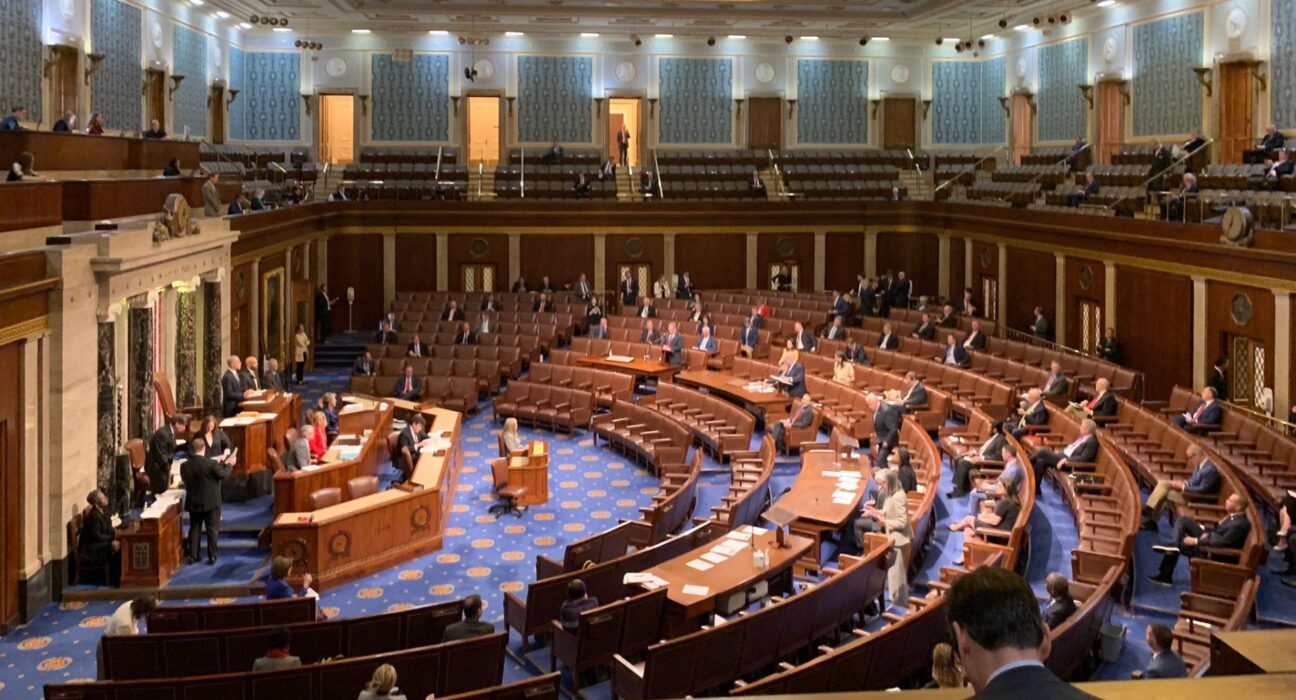The crypto world is holding its breath! Just when things seemed to be gaining momentum, a major piece of legislation in the United States is threatening to cast a shadow over the burgeoning digital asset space. We’re talking about the $1 trillion bipartisan infrastructure bill, championed by President Joe Biden, which is set for a crucial vote in the House of Representatives this week. But why is this infrastructure bill causing such a stir in the crypto community? Let’s dive into the details and understand what’s at stake.
Infrastructure Bill on the Fast Track: What’s the Deal?
House Speaker Nancy Pelosi has announced that the House will vote on this massive infrastructure bill, possibly as early as this week. This isn’t just about roads and bridges; it’s a comprehensive package that touches various sectors, including – you guessed it – cryptocurrency. Pelosi expressed confidence in its passage, stating, “Let me just say that we’re going to approve the measure this week.” This confidence suggests a strong push to get the bill across the finish line, especially with the looming expiration of the Surface Transportation Reauthorization Act of 2021.
While the infrastructure bill garnered bipartisan support in the Senate back in August, it’s a particular clause within the bill that has the crypto community deeply concerned. This clause introduces stringent counterparty reporting requirements. Sounds technical? It is. Essentially, it could place significant burdens on decentralized network validators and even software developers within the crypto ecosystem. These are the very people who often lack the kind of information the bill demands for compliance.
To put it simply, the bill, as it stands, could inadvertently classify various crypto entities as “brokers,” subjecting them to tax reporting obligations similar to traditional financial intermediaries. This broad definition of “broker” is the crux of the issue.
Senator Pat Toomey, recognizing the potential overreach, proposed an amendment to clarify and narrow down this definition. His amendment aimed to exclude validators, developers, and node operators – the backbone of many decentralized crypto networks – from these stringent rules. This amendment even gained bipartisan support from Senators Cynthia Lummis, Rob Portman, Mark Warner, Kyrsten Sinema, and Ron Wyden, showcasing a cross-party understanding of the issue.
Why is the Crypto Community Alarmed?
Despite the bipartisan support for Senator Toomey’s amendment, it faced a roadblock. Senator Richard Shelby’s single opposition unfortunately prevented the amendment from being incorporated into the bill. This rejection has sent ripples of dismay throughout the crypto community. Why? Because it signals a potentially stifling regulatory environment for crypto innovation in the United States.
Here’s what’s worrying crypto enthusiasts and businesses:
- Broad Definition of “Broker”: The bill’s current language could sweep in miners, validators, software developers, and potentially even users under the definition of “broker.” This is seen as technically infeasible and fundamentally misunderstands how decentralized crypto networks operate.
- Unrealistic Reporting Requirements: Decentralized entities often don’t have the kind of centralized data and customer information that traditional financial institutions possess. Expecting them to comply with broker-like reporting is seen as asking the impossible.
- Innovation Chill: Many fear that these overly broad regulations could stifle innovation and push crypto businesses and talent out of the United States to more crypto-friendly jurisdictions.
- Privacy Concerns: The increased reporting requirements could raise privacy concerns for crypto users, who value the pseudonymity and decentralization that crypto offers.
Adding another layer of complexity, some members of Congress are suggesting a delay in the infrastructure vote. They propose waiting until the $3.5 trillion social welfare and climate package is finalized. This is because the hefty price tag of the second package is causing some friction even within the Democratic party. Pelosi herself acknowledged that the scope of the $3.5 trillion bill might need to be adjusted to reach a consensus.
“We are currently working on modifications to this historic law with the Senate and the White House,” Pelosi stated, indicating ongoing negotiations. The final outcome of both these bills and their interplay could significantly shape the future of cryptocurrency regulation in the US.
What’s Next?
The coming days are crucial. As the House prepares to vote on the infrastructure bill, the crypto community is watching closely. Will there be any last-minute amendments or clarifications? Will the concerns of the crypto industry be addressed? The answers to these questions will have a profound impact on the trajectory of crypto in the United States.
Stay tuned for further updates as this story develops. The intersection of traditional infrastructure and the burgeoning world of crypto is proving to be a complex and evolving landscape.
Read More: Bitcoin Law has been approved by a supermajority.
Disclaimer: The information provided is not trading advice, Bitcoinworld.co.in holds no liability for any investments made based on the information provided on this page. We strongly recommend independent research and/or consultation with a qualified professional before making any investment decisions.




